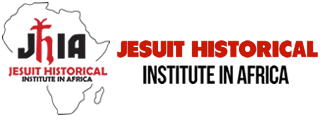Editorial
We would like to close the year with a word of thanksgiving for so many blessings received and studiously shared with you over the months. Health, spiritual consolations, and desolations are the hallmarks of a life committed to Christ in the service and salvation of humanity.
The Institute’s staff, reduced with the departure of our Good Father Anicet N’teba, SJ, worked without respite, with the optimism and hope of the poor, the Christmas poor. Our traditional benefactors have been at our side, like the Three Wise Men, coming from East and West to make their small contribution to the construction of our edifice. The world and its wars (including the current one in the Savior’s birthplace) and its inflations have not slowed down our benefactors in their generosity. Hearts that have shared with us, like Jesus, their poverty to enrich us, not with the accumulation of money which is little, but precisely with culture for which so few resources are directed towards Africa, and for love and friendship.
So, our gratitude goes to the unfailing support of the Jesuit Major Superiors in Africa and Madagascar, Mariano and his family, Adèle Clifford in her hospital where she saves the lives of those wounded and paralyzed by war, and many others who would often inquire about, encourage us and pray for us. We received new book collections, including a very fine one by Hans M. Zell and Terry Barringer, cataloged them, and put them away. We continued the work of electronic archiving. We mobilized other institutions for greater institutional awareness of archives, and each time, the Lord’s largesse did not fail us.
Our institutional Christmas is also about living off divine providence when you have so few human and financial resources and feeling deep joy and consolation for a job well done. It’s understanding that, in the small details of human history like the birth of a child in a manger, with more or less known parents, “The Lord is coming!”, and He comes to make His dwelling among us. It’s not therefore doing too much that increases hope and love, but carrying a message and believing in it, so that even the most skeptical will be astonished when they hear it, as something new and fresh, something to dream about, something that creates momentum in them and set them in motion.
Yes, in Africa we can and must talk about archives, with emotion and passion, and work assiduously to create more of them, preserve them, and make them available for research. The whole world has more libraries than we do, and we will never be able to compete with some Western universities on the quantity and quality of the books on the shelves. Fortunately, however, youth and the future of humanity do count. Africa matters, and will always matter at least as a field of research. The present and future of humanity, its hopes, and anxieties, are shaped within it. And as such, Africa cannot be ignored!
If so, what unique contribution can Africa make to the academic world? It can produce archives of its wealth and miseries for its institutions. Africa can document itself for its sons and daughters, but also the many curious and learned people who come from elsewhere, sometimes like the Magi, sometimes like Herods, and Africa can offer them something unique to her, that their printing presses and libraries simply cannot print and preserve.
Africa must become an archival crib, the world center of archival heritage in Africa. In this, at least, everything depends on her; everything depends on us. And it needs so little to achieve it: An idea, a vision, starting somewhere like in a manger, around the poor parents Joseph and Mary, in the hollow of a crib Africa can make with her own hands, using her bamboo, palm, sissongo and clay. As someone with African roots would say: “Yes, We Can!”
Merry Christmas, Best Wishes for 2024!
Jean Luc Enyegue, SJ
Director JHIA




